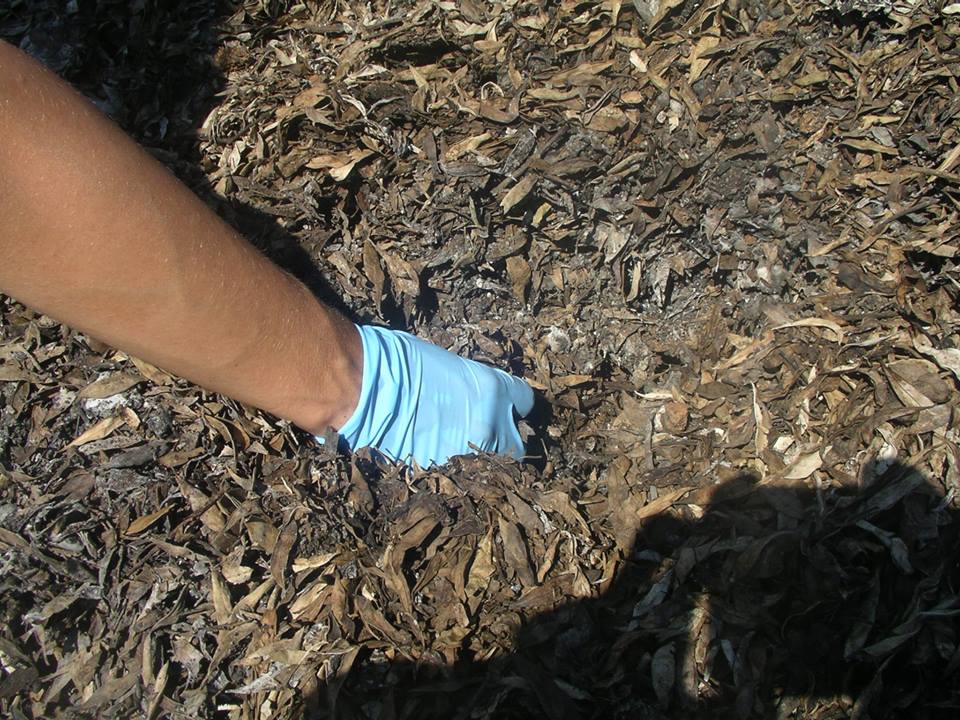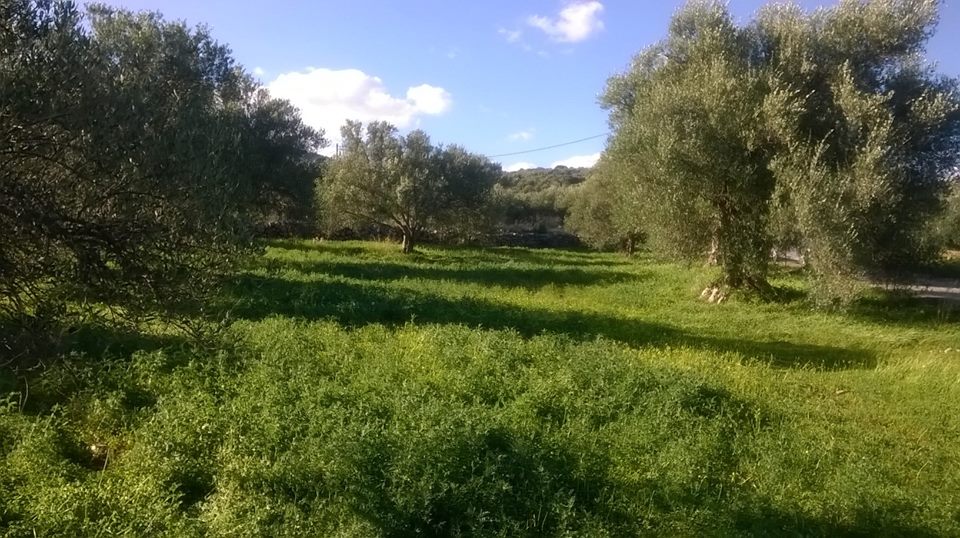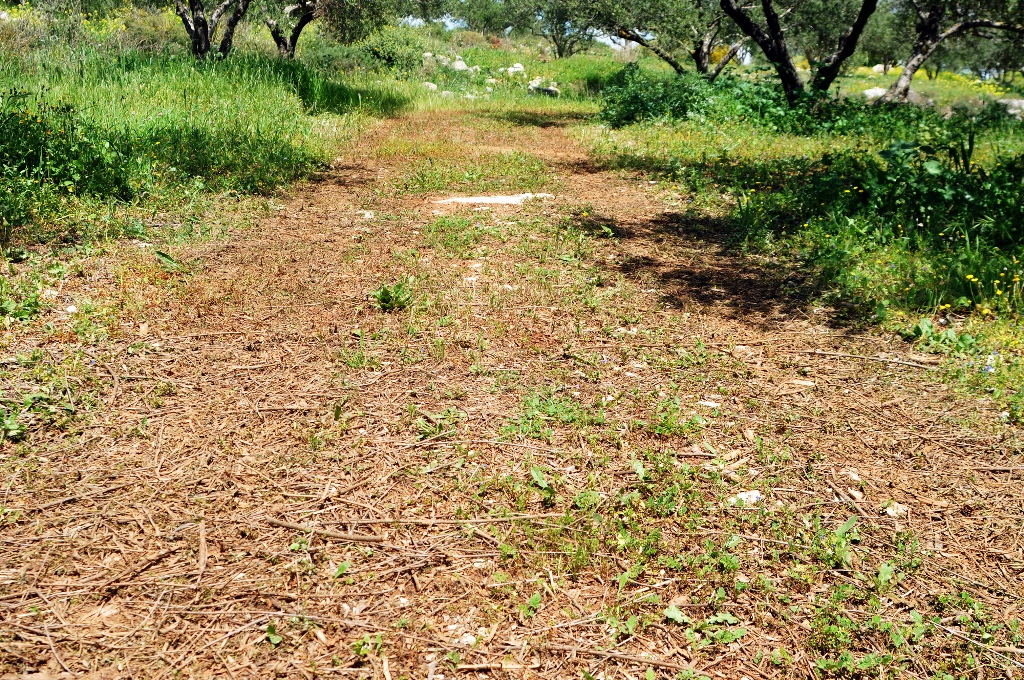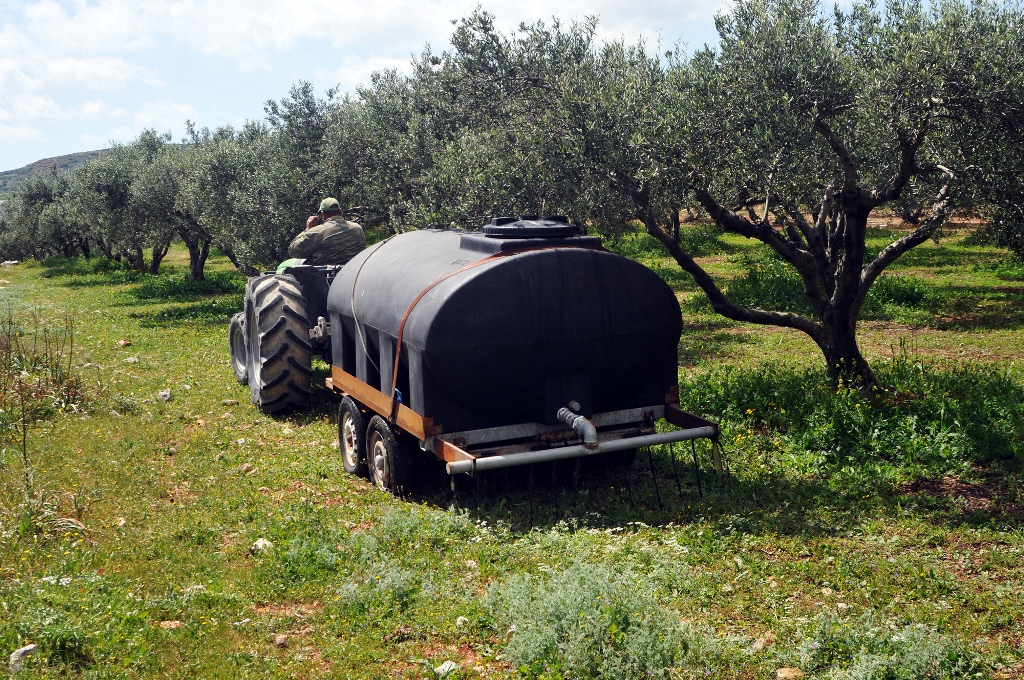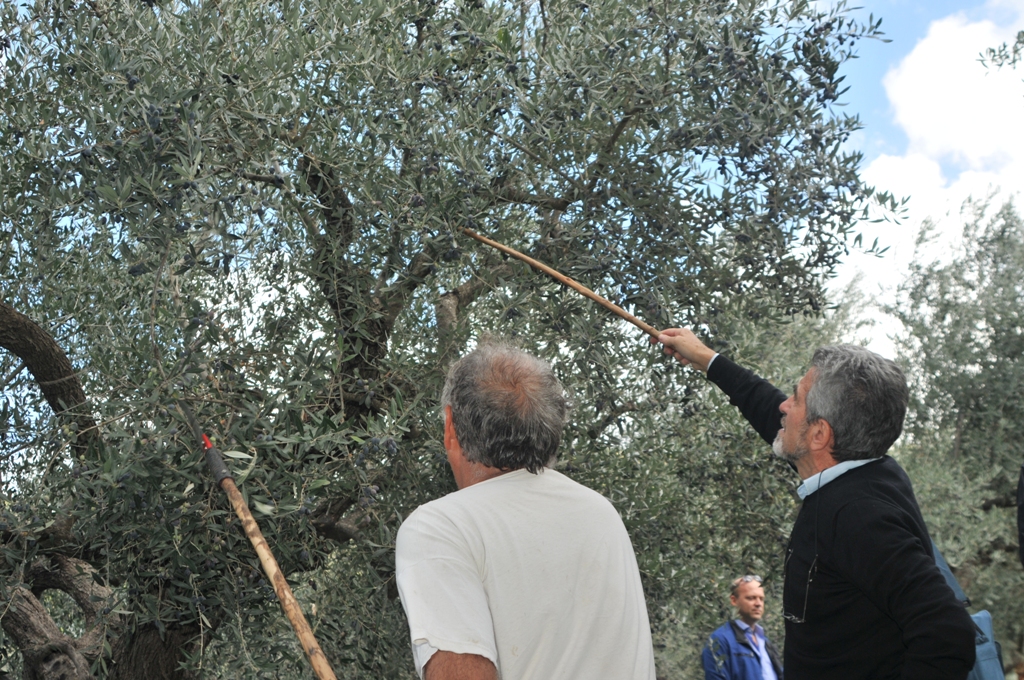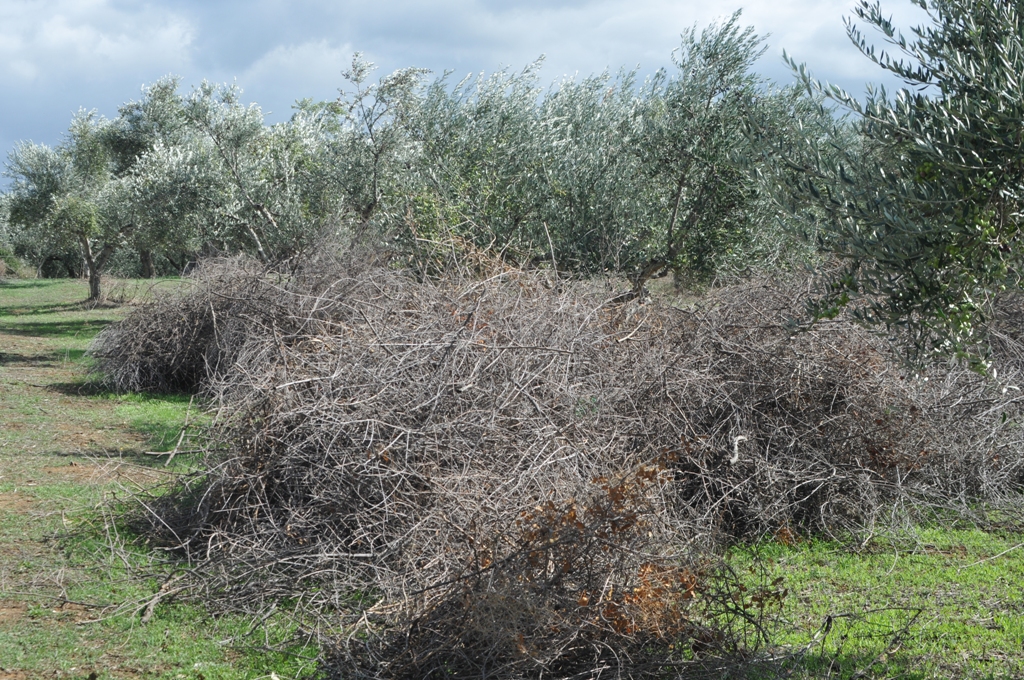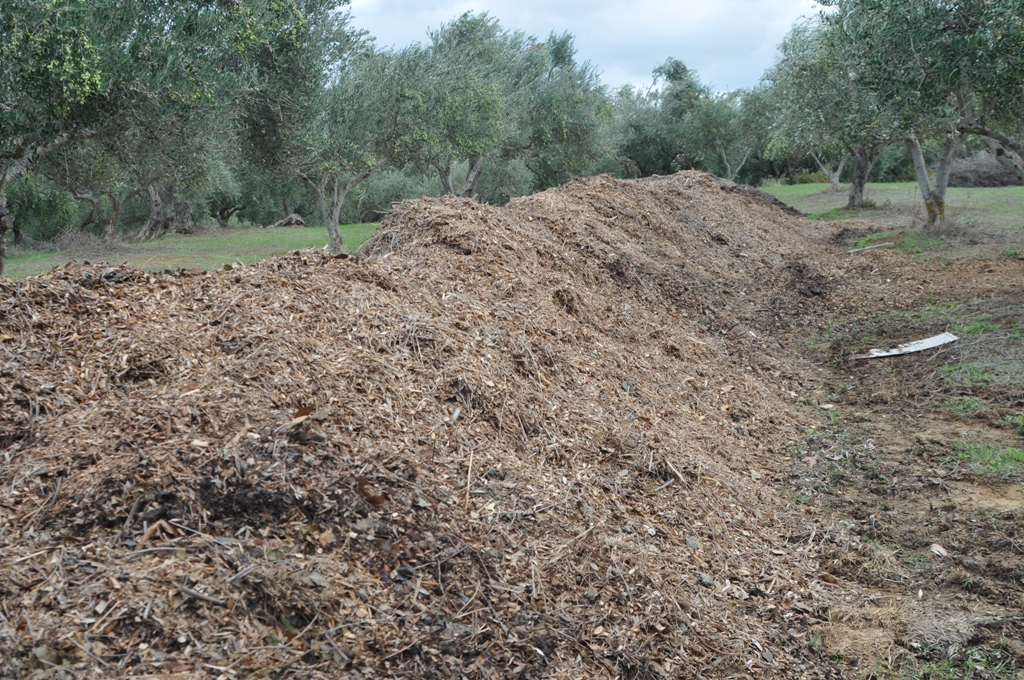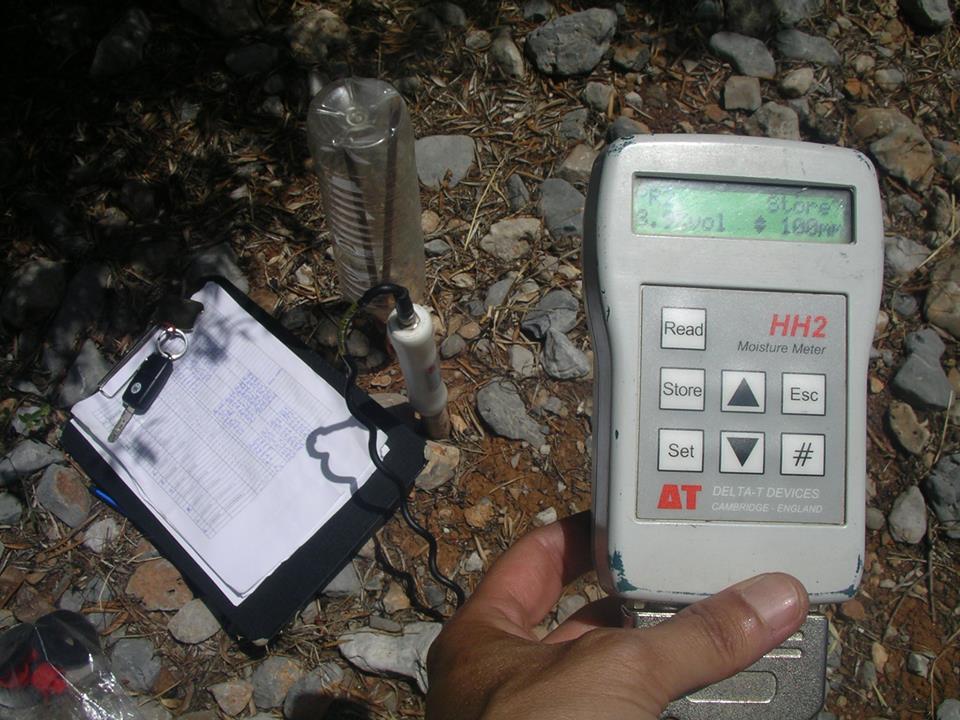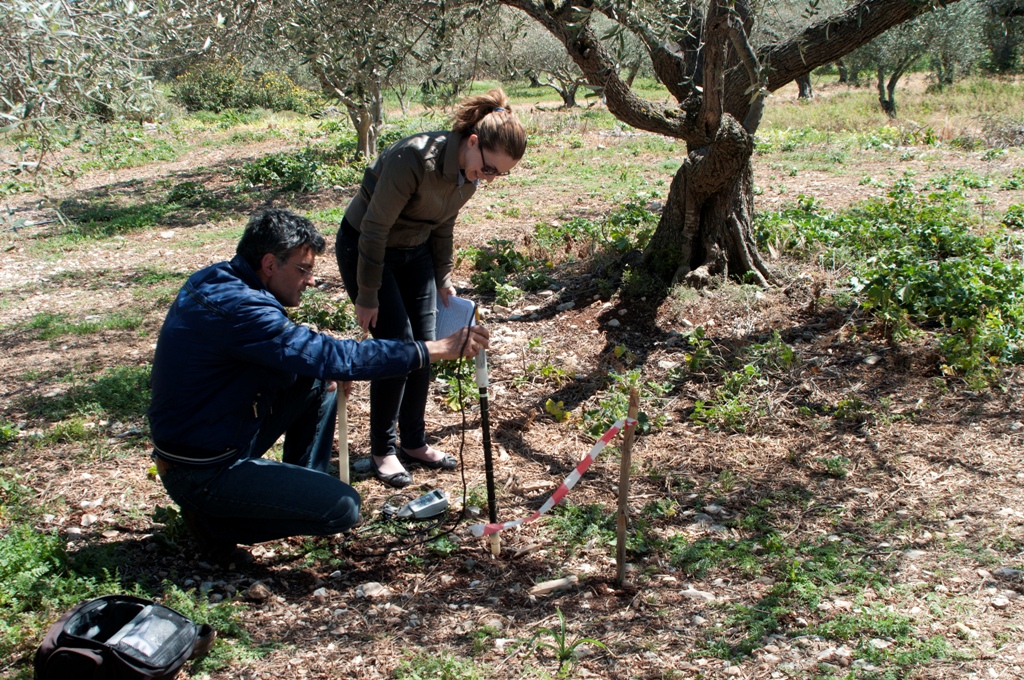April 2018 - oLIVE CLIMA
Α) Identity of the project
| Title/ N° |
oLIVE CLIMA ''Introduction of new oLIVE crop management practices focused on CLIMAte change mitigation and adaptation" LIFE+11 ENV/GR/000942 |
| Duration | 01.10.2012 – 30.09.2017 |
| Budget | 3.644.873 € |
| Beneficiaries |
Coordinating beneficiary: Development Agency of Eastern Thessaloniki’s Local Authorities “ANATOLIKI S.A.” Associated beneficiaries: The Institute for Olive Tree, Subtropical Crops and Viticulture “IOSV”, the Department of Soil Science of Athens “DSSA”, the Soil and Water Resources Institute – Former Land Reclamation Institute (LRI), the University of Basilicata in Italy – Department of European and Mediterranean Culture (DICEM), the private company the Rodax Agro E.P.E.- Environmental Protection Systems, AGROTYPOS S.A. - agriculture and food news, , the Agricultural Olive oil Cooperative - A.S. NILAEUS, the Union of Agricultural Cooperatives of Peza of Iraklion Pref. Crete S.A. and the Agricultural Cooperative Partnership Mirabello Union S.A. |
| Location of activities |
The project actions took place for 5 years, in three areas in Greece with different characteristics each in Crete and in Peloponnese. The actions implemented in 120 olive groves (40 in each area), in the Prefecture of Heraklion (E.A.S. Peza), Lassithi (E.A.S. Mirabello), and Messinia (O.P. Nileas) to irrigated and arid parcels, as also in the pilot olive grove of ELGO DIMITRA. In the implementation were participated 52 farmers, 3 agricultural cooperatives (Nilaeus, Peza and Mirabello), the agronomists of ELGO DIMITRA, and the working groups of the 10 project partners. |
| Website | |
| Contact |
ANATOLIKI S.A. – Development Agency of Local Authorities, Address: 1st Km Thermis – Triadiou P.O. BOX 60497 – 57001, THERMI, Eftichia Kivrakidou, Τel.:+30-2310-463930, Fax:+30-2310-486203, E-mail: This email address is being protected from spambots. You need JavaScript enabled to view it., Website: www.anatoliki.gr |
Description/Aim
The main aim of the project was to introduce new cultivation practices on olive-producing areas in Greece and in Italy, in order to find cost-effective means for mitigation and adaptation to climate change. The project investigated the potential of these areas to increase carbon sequestration by soil, as well as to reduce greenhouse gases emissions. The project oLIVE CLIMA succeeded in its target to introduce farming practices that enhance carbon sequestration and permanent storage, as part of CO2 is removed for more than 100 years from the atmosphere. This leads to olive products being the only food deserving a carbon credit, a benefit that may be commercially useful to producers for promotion of olive oil. oLIVE CLIMA practices proved to be economically more sustainable than their traditional counterparts. The project focuses on climate change mitigation and adaptation to new climatic conditions through:
- reducing greenhouse gas emissions from cultivation of olives
- increasing the capture of greenhouse gases from the atmosphere to plants and soil of the olive grove
Β) Best Practices
Good project practices were the innovative implementation in olive cultivation, in order to transform it into a useful tool for management of climate change mitigation and adaptation.
The project’s applications can be separated into two broad categories:
- Return of organic matter in the olive grove (recycling pruning as mulch and nutrition material, use of olive oil mill by-products with soil application either directly or after composting).
- Introduction of new cultivation practices to improve the balance of CO2 (modification of olive groves flora and olive trees pruning to increase the CO2 capture through photosynthesis, no soil tillage to limit the release of CO2 from the ground).
Among the practices introduced, the most important, as well as accepted is pruning. It has become obvious to olive growers that oLIVE CLIMA pruning can smoothen the alternate bearing of olive trees, a situation that exhausts the trees in the “on” years, rendering them susceptible to adverse conditions in the “off” years, with detrimental effect on yields and cost.
Good Dissemination Practices include 5 training seminars and 5 educational videos for farmers, as well as meetings with relevant Ministries for policy making. Meetings also took place with representatives of commercial companies, for the adoption of project practices and the certification of their products.
In addition, the project organized its International Conference entitled "Climate Change - Agricultural Change", attended by project partners, distinguished academics, keynote speakers as well as scientists from 28 countries.
The project contributed to the amendment of the Joint Ministerial Decision, regarding the environmental licensing and the waste management of olive mills and to the update of the Programme for Rural Development for Greece 2014-2020, regarding pruned wood shredding.
It is noted that the partners participated in the development of the "Olive Oil Coal Protocol by the International Olive Council" and the PEFCR Technical Secretariat for Olive Oil in the EU.
C) Results
In the three study areas the spreading of the shredded wood in the olive grove returned 42 kgr C per acre. The spreading of the composted materials (leaves, waste water, sludge, scrape from evaporation ponds, pomace) returned to 75 and 8 kgr C per acre. While the enrichment of indigenous flora and the permanent no soil tillage increased the return of C to 98 kgr C per acre.
Non-combustion of pruning is a great benefit to the environment, as the weight of dry pruned wood per acre is estimated at around 120 kilos. It is estimated that about 40 g kg-1 of CO is released from the burning of olive pruned wood. Indicatively, it is reported that pruning 300 kilograms / acre and avoiding combustion avoids the release of 12 kilograms of CO, 0.06 grams of NO, 0.4 kilograms of NO2 and other greenhouse gases.
The practices introduced by the project can be used in any olive cultivation in the country, with adaptation to local conditions. They have also been proposed by Rodax Agros (08.11.2017 & 13.01.2018) for incorporation in the programs of the Olive Organization Organizations, based on Regulations 1308/2013 & 611/2014. Also, the pruned wood shredding and the spreading of the shredded wood has been examined by the Ministry for funding through the Rural Development Program for agri-environmental measures.
For more information, about the project’s actions, deliverables and results, please visit the project’s website www.oliveclima.eu and the social media Facebook & Twitter.
Project’s after LIFE communication plan available here and the Layman’s Report here.



